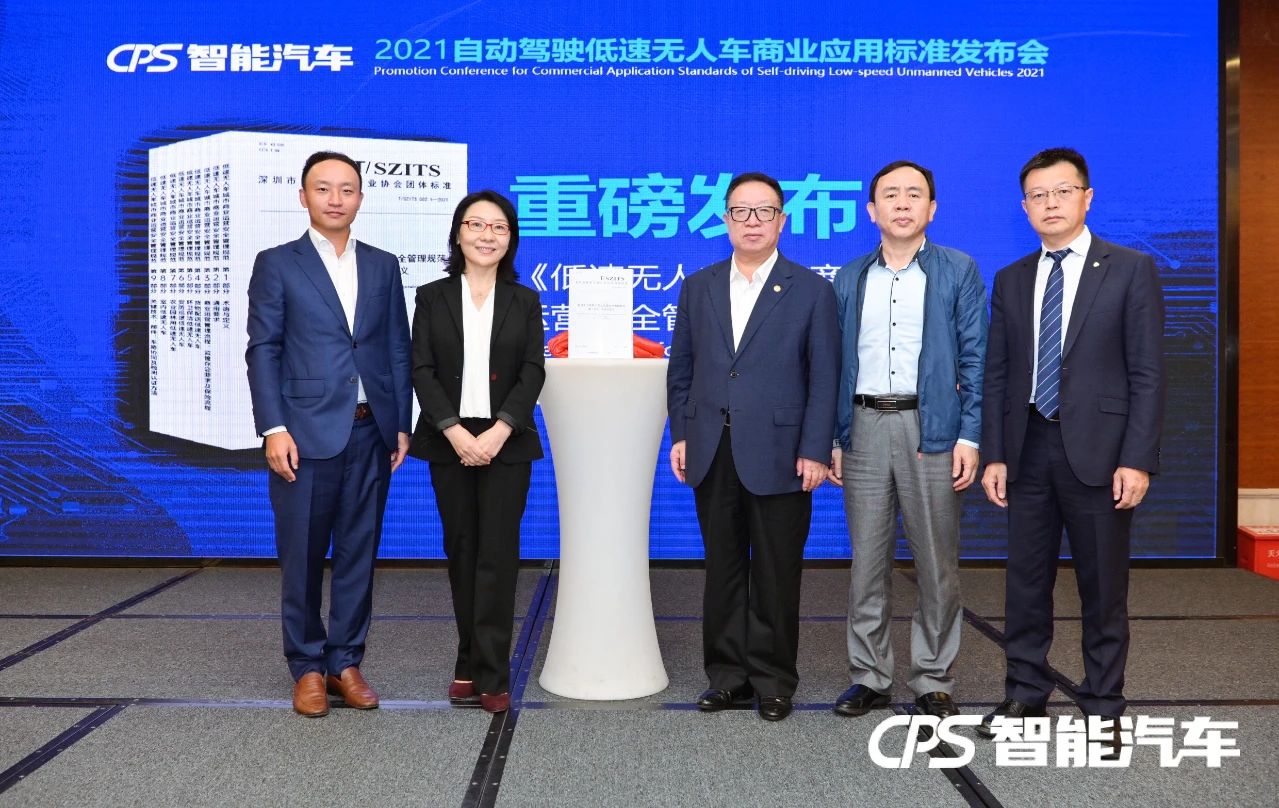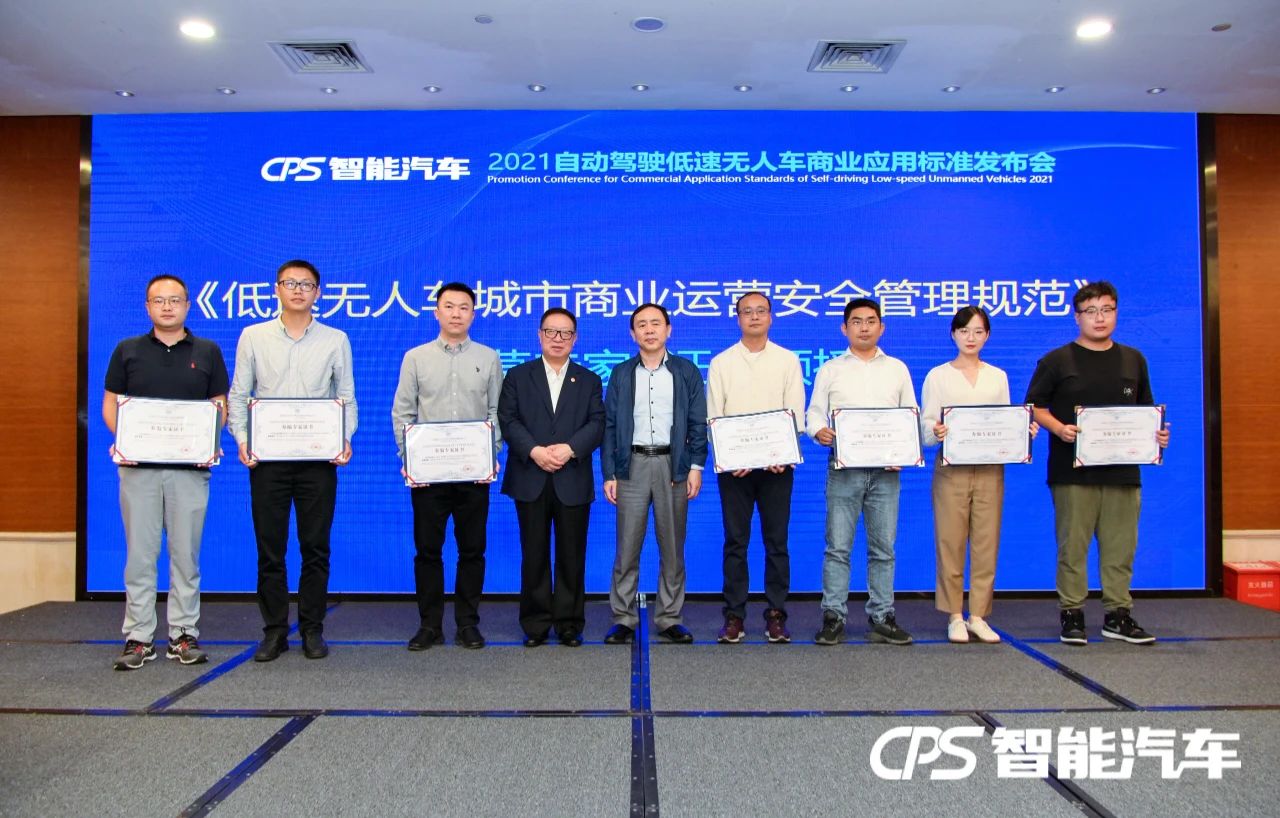On 29 October 2021, Shenzhen Intelligent Transportation Industry Association (SITIA), together with more than 50 enterprises, released the ‘Safety Management Specification for Urban Commercial Operation of Low-speed Unmanned Vehicles’, which is the first group standard for urban commercial operation of low-speed unmanned vehicles in China. As a standard-setting participant, XGD attended the launch event held at Shenzhen Shenhang International Hotel on the same day.

The standard released by the Shenzhen Intelligent Transportation Industry Association (SITIA), in conjunction with a number of industry organisations and in collaboration with 57 domestic low-speed unmanned vehicle-related units with a total of 112 experts, has taken more than two months and has been verified through a number of tests, and stipulates the terminology and definitions of low-speed unmanned vehicles, general requirements, commercial operation and management processes, regulatory and depository requirements, and insurance processes, key technologies, parts, vehicle-circuit coordination, and testing and certification methods. It is a wheeled low-speed unmanned vehicle that can be applied to specialised services such as cargo transportation and distribution, sanitation and cleaning, security patrol, agricultural and gardening operations and indoor scenes.

At the conference, representatives of the drafting parties of the standard discussed the industry prospects of driverless vehicles, as well as the significance of the release of this standard and its impact on the industry. Yang Jincai, president of Shenzhen Intelligent Transportation Industry Association, said in his speech that with the breakthroughs and continuous advancement of many technologies such as artificial intelligence and sensing and monitoring, driverless vehicles are bound to become more intelligent and industrialised. ...... Future cars will not only be limited to a means of transport, but more towards a new generation of Internet terminals, and the emergence of driverless technology will fundamentally change the way cars are controlled.
Liu Jianfeng, deputy director and researcher of China Safety Technology Prevention Certification Centre, pointed out at the conference that the gradual landing of low-speed unmanned vehicle application scenarios urgently needs to leverage the standard system of low-speed unmanned vehicles. The standard released today is of great significance, and at the level of technical specifications, it provides strong support for the commercial operation of low-speed unmanned vehicles, and actively explores the right-of-way allocation of unmanned vehicles in the city, the self-driving ability, the safety of the equipment itself, data communication, safety management, and other aspects.
The development of this standard will lay the foundation for the next step in accelerating the rapid deployment and widespread application and promotion of low-speed unmanned vehicles in the Guangdong-Hong Kong-Macao Greater Bay Area and cities in China that have the conditions to do so.
XGD is both a member of Shenzhen Intelligent Transportation Industry Association and a major participant of the standard. 2020 is the year when XGD strides into the field of intelligent driving, and the company participated in the investment of Shanghai Heqian Technology Co., Ltd, which is committed to fully exploring and making use of the resource advantages in their respective fields through integration and development to enhance the effect of cross-industry resource integration. In the same year, XGD set up a wholly-owned subsidiary, Miaxis, with the Group's professional advantages in the fields of biometrics, image recognition, financial payments, etc., actively researching the cutting-edge AI technology, and carrying out the layout attempts in the field of offline intelligent cars.
As an active participant in the field of intelligent driving, XGD is willing to work with industry partners, adhere to the core of self-developed technology, continue to participate in the development of more high-quality standards, and help the commercialisation of low-speed unmanned vehicles.


